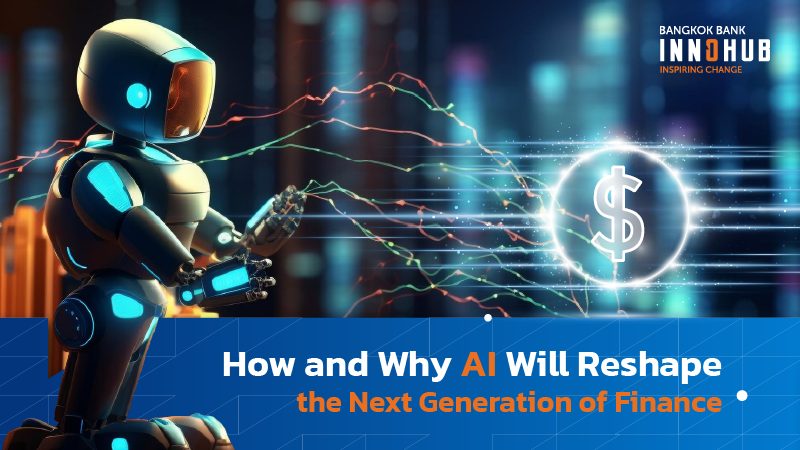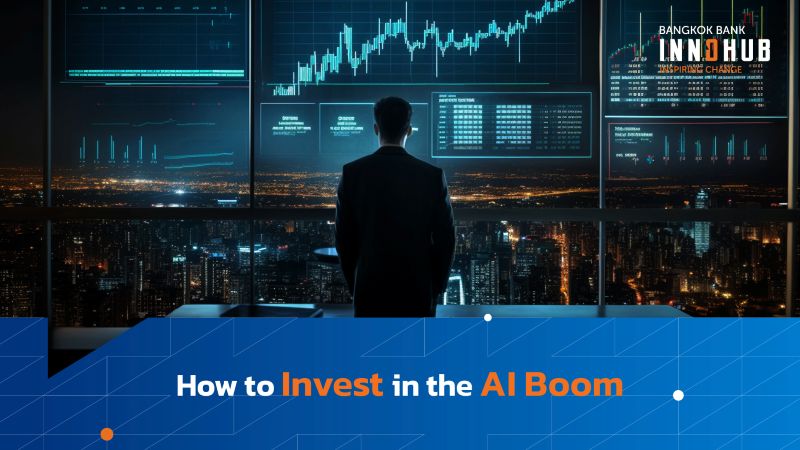Finance is flourishing. Fields like cryptocurrency trading, stock exchanges, and traditional financial services are seeing heightened activity across markets as global and regional wealth continue to grow. Technology has also put banking and investment services at the fingertips of anyone with a computer or mobile device, making money management almost effortless to access. While stocks and other assets will always have their ups and downs, astute investors can turn even those shifts in momentum to their own advantage.
So it makes sense to wonder, with AI poised to disrupt financial institutions in innumerable ways — why exactly do we need to mess with a good thing?
Competition fuels innovation
Some types of investments are simple and have no urgency to them. The purchase of bonds is in this category, alongside the idle accumulation of interest from long-term savings accounts. But when trading stocks or cryptocurrencies, for every buyer there is a seller. Therefore if one side has a technology advantage over the other, the balance can no longer hold. So even if you’re happy managing your finances without the benefit of AI, the fact that others are now using it means that you will have to upgrade as well.
Besides, as we will see, AI really does improve overall speed and capability as well as the general investor experience. AI can organize relevant data into user-friendly dashboards, suggest strategies for safer investment, and alert traders to notable market activity. It can also prevent serious problems, as we will see directly.
System overload
Legacy wealth management systems weren’t built to handle the volume of trades now seen in an average weekday, nor were they designed to fend off attempts at financial fraud from malicious actors working at today’s level of technological sophistication.
Financial institutions now routinely encounter critical challenges such as security vulnerabilities, inefficient processes, and a pressing need for improved efficiency to facilitate operations through heavy trading periods. AI technology offers potent solutions to these challenges. Let us look more closely at what the current generation of AI can offer in each of these areas.
Real-Time Market Monitoring:
- AI analyzes massive data volumes in real-time, pinpointing trends and patterns across various financial markets to facilitate rapid decision-making.
- Continuously evaluates market conditions and analyzes indicators across sectors to inform diverse trading strategies.
What it means – Software can help individual users with live queries, and also suggest investment strategies based on their credit scores, investment goals, and current market conditions. Because these abilities rely on data processing and pattern recognition, AI can also leverage these same talents to offer protection against certain types of fraud.
Automated Trading and Analysis:
- AI automates trading processes in various financial sectors, executing trades based on sophisticated algorithms and predefined rules without human intervention.
- Employs machine learning to adapt and refine trading strategies based on historical data and evolving market dynamics.
What it means – Just like autopilot can navigate a vehicle around its environment, purpose-built AI software can select and execute trades when conditions are opportune. The AI in both cases continuously collects relevant data and makes statistically responsible decisions, undistracted by emotion or fatigue.
Enhanced Security and Optimization:
- AI boosts security across financial platforms by detecting anomalies and preventing fraudulent activities, essential in sectors like stock exchanges and blockchain.
- Enhances investment strategies and risk management by analyzing extensive datasets and predicting market sentiments, applicable across financial services to maximize profitability and mitigate risks.
What it means – AI and blockchain technology can make each other more secure, so that data can be reliably stored and shared by users and financial institutions alike. Detection of data anomalies is particularly important here, as data underpins all financial activity — and the promising world of crypto has hitherto not exactly been immune to fraud.
Regaining control in a complex world
These and other AI-powered enhancements, such as the generation of smart contracts to facilitate digital exchanges between users, are the new tools of the trade in today’s financial world.
Yet challenges remain. AI software will always be limited by the quality of data it is able to access, alongside the fact that it doesn’t have the level of common sense that the human mind can bring to the table. Nor has AI achieved perfection, even in the things that it does well. Many, for example, have noted the inaccurate responses given by ChatGPT and other large language models when asked a straightforward factual question.
But the age of AI is here nevertheless, and it will make financial management easier for everyone — provided we keep in mind these limitations and learn to work alongside the software rather than relying on it entirely.
The day may yet come when computers are better than us mortals at everything. Until then, let us benefit from the knowledge and convenience they bring, while remaining alert to the deep complexities of finance and other realms of human activity.




